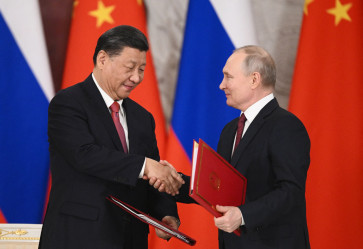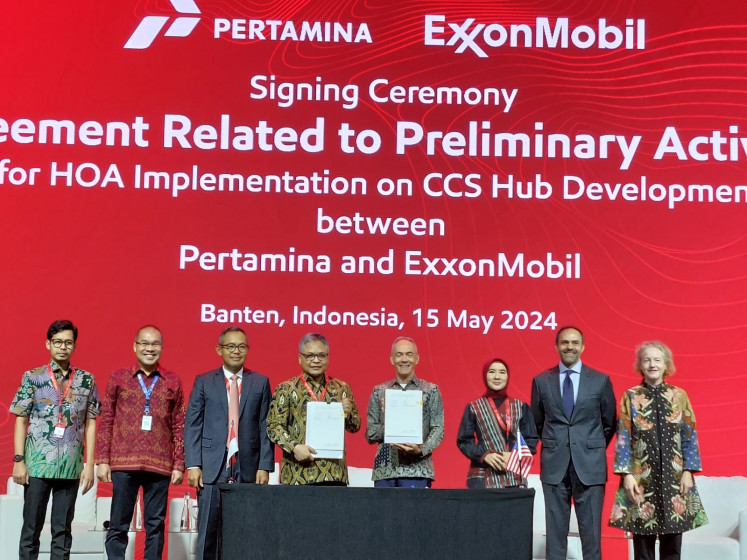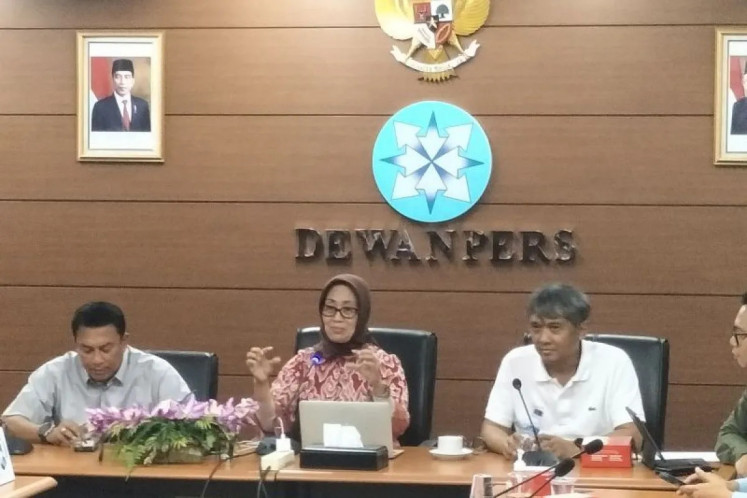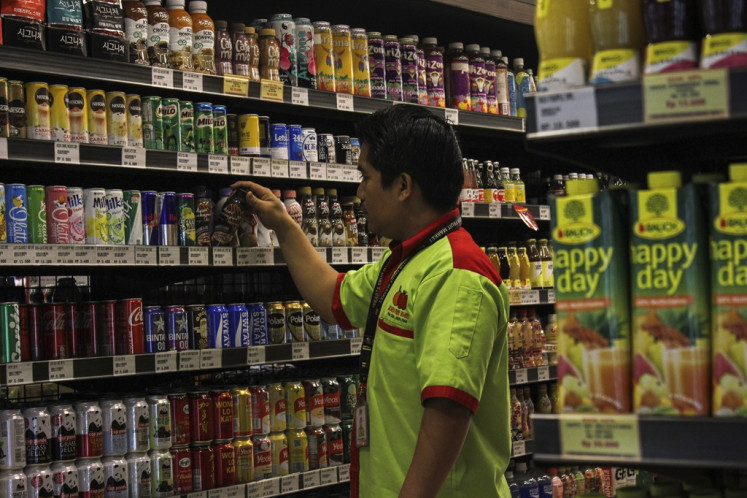Women in philanthropy: Fifi Pangestu’s leadership and vision in Bakti Barito Foundation
Change Size
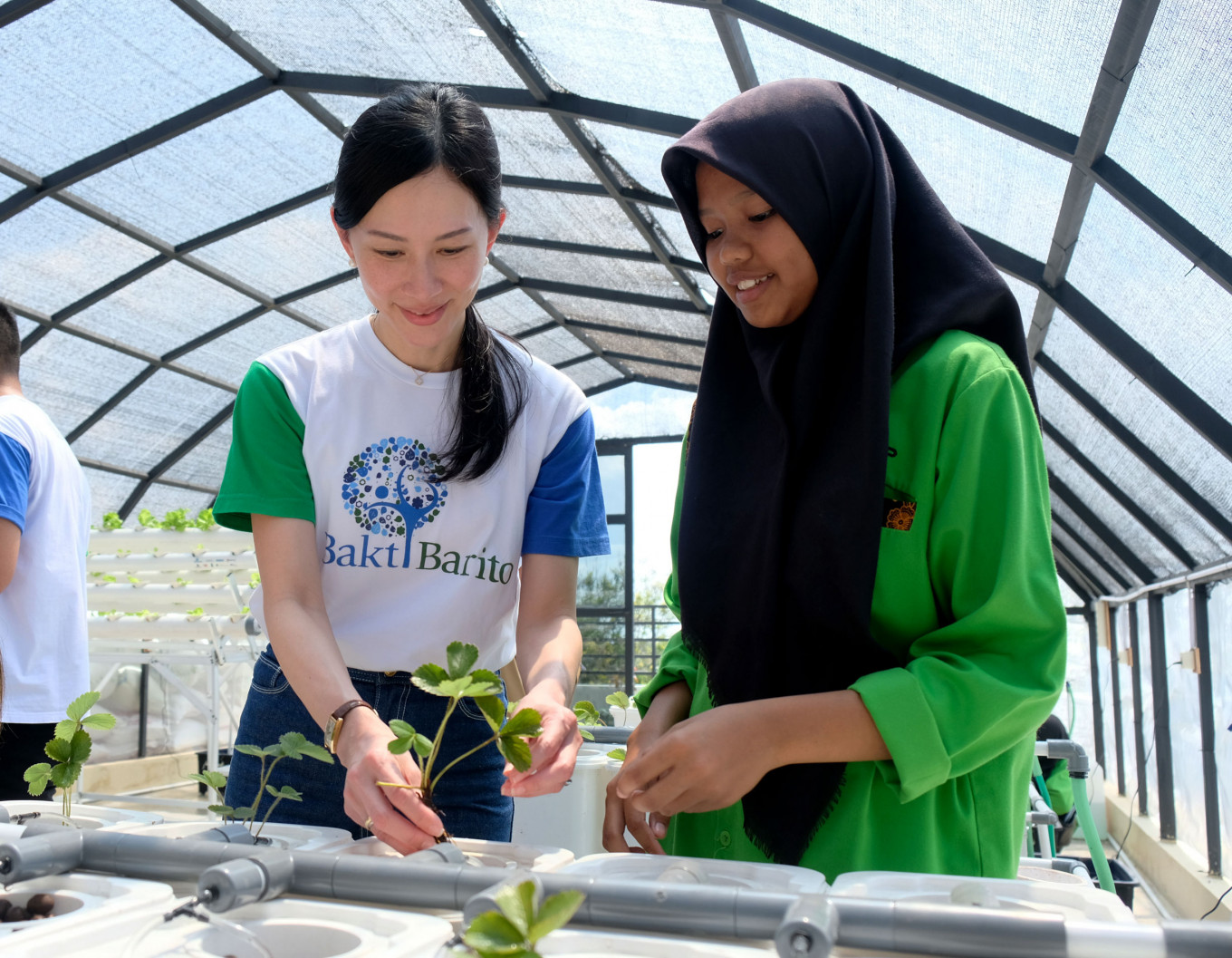
“Whenever I hear there is a problem in a community, we want to aid them immediately. The thing is, giving help to the community involves many aspects to consider, and therefore we have to prioritize according to our available resources, budget constraints, human resource constraints and so on,” said Fifi Pangestu, the executive director of Bakti Barito Foundation.
Established in 2011 by Prajogo Pangestu, founder and president commissioner of Barito Pacific Group and his wife Harlina Tjandinegara, Bakti Barito was initiated with the aim of improving Indonesia’s communities and the environment across four pillars, namely the environment, economy, society and education.
Fifi revealed that while the foundation focused mainly on charity by providing immediate relief to those in need when it began its journey, it has now shifted its operations. Altering the priority to long-term relief, the corporate foundation started pursuing impacts that targets systemic change, achieved by finding the root causes of an issue and providing solutions to the problems. The foundation also serves as the platform of sustainability initiatives of the group and monitors all subsidiaries across the four pillars.
“Charity can help people immediately by giving one-time donations. However, we want to ensure the sustainability of our programs so that at the end of the day, we can empower our program beneficiaries to become self-sufficient,” Fifi said.
She took the post of executive director in 2017, equipped with a strong desire to empower the foundation’s program beneficiaries, leading her to prioritize philanthropic endeavors designed to elongate strategic impacts in education and the environment, specifically climate education.
According to Fifi, the primary reason why the foundation focuses on climate education is that Barito Pacific Group’s businesses are closely related to natural resources and energy.
“We want to use our expertise to build knowledge and bring awareness of the circular economy in climate education. After all, our natural resources are limited. Our major concern is how we can conserve and make them sustainable for the long run,” she said.
Empowering the youth
“We try to drive change by, for example, empowering our youth about particular issues and acting as a catalyst for these initiatives,” she said.
Through one of the foundation’s flagship initiatives, Green Guardians, the program aims to foster students’ behavior toward environmental conservation through the implementation of climate education, from providing learning modules to the tailored daily practices of students and teachers.
Fifi underscores the importance of the mindset of teachers and children through climate-education projects at school to allow them to be readily adaptable to the school curriculum, which highly respects environmental conservation.
The program provides a platform for educators to teach students how to preserve the environment starting from their daily lives, starting from responsible consumption and waste management, including plastic-waste recycling.
Each school is equipped with adequate infrastructure such as waste segregation and disposal, as well as a garden to motivate pupils to cultivate a reduced-waste lifestyle, recycling and efficient use of water and energy.
To ensure the success of the program Fifi adopts collaborative and empathetic approaches by involving a wide range of stakeholders, including businesses, government, local figures, academics, NGOs and civil society.
Under the collaborative program, she emphasizes that her team visits the school every week to accompany and monitor closely how the program is running and speak directly to the teachers and students. This is rooted in her belief that working hand-in-hand will have a bigger impact.
“Being a leader also means going on the ground, meeting directly with the beneficiaries and talking to them to show empathy,” said Fifi. “Empathy, sincerity in engagement and collaboration or gotong royong [mutual cooperation] are of paramount importance to achieve philanthropic goals.”
Reflecting on the future generations nurtured by the foundation, Fifi strikes a sanguine tone on the next generation of philanthropy.
“The young generation wants to make a difference. They want to engage in 'strategic philanthropy', which is taking a slightly different approach to the strong foundation of charitable contributions that already exist in the space," she said.
Leading by example
Throughout her nearly six years of leading the foundation, Fifi has been able to lead the team to achieve the project objectives despite the many challenges they have faced. She likens leading the team to “leading a football team”, to ensure that team members tune in with respect to each program.
“I think each individual has their own ability, skill and strength, so I have to find out the position of each team member’s strength, which can complement each other in order to make our programs successful,” she said enthusiastically.
Under her leadership, the foundation has received accolades for its work, gaining recognition from the National Development Planning Ministry and the Indonesia Sustainable Development Goals Awards (ISDA).
Aside from leading the foundation, Fifi is an active member of Asia Philanthropy Circle. She also holds various senior management positions in other companies of Barito Pacific Group. Currently, she also sits on the board of regents at Boston College, in the United States, where she earned her bachelor of science in finance, accounting and economics.
Between her myriad roles and responsibilities as a professional and a mother of three children, life for Fifi can get rather busy and demanding. However, she often makes time for herself to unwind by reading books, particularly autobiographies, which she regards as sources of information and inspiration.
While Fifi’s reading list is quite extensive, one of the titles she said she has enjoyed the most is Becoming: Adapted for Young Readers by former US First Lady Michelle Obama.
“[Obama] focuses on gender economics. Among her insights that I remember well is that ‘no country will flourish if half of the population do not participate, meaning that no country will grow unless women participate in the workplace’,” she recalled.
To that end, Fifi advises young female leaders to be confident in their abilities, not only for their personal growth, but in their careers as well. “We always need more women in decision-making positions,” she said with a smile. “Especially in philanthropy, women are more inclined to support causes that directly impact children and families, such as education, health care and social welfare programs.”
“Women leaders often approach their work with a strong sense of empathy and compassion. I believe that by nature, women are apt to drive collaboration to overcome any challenges,” she concluded.
This article is published in collaboration with Bakti Barito Foundation



